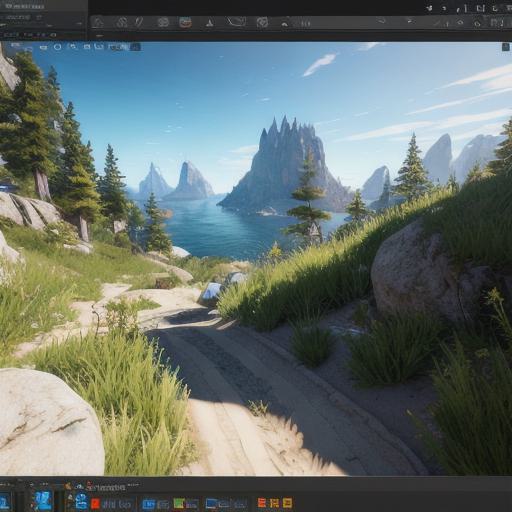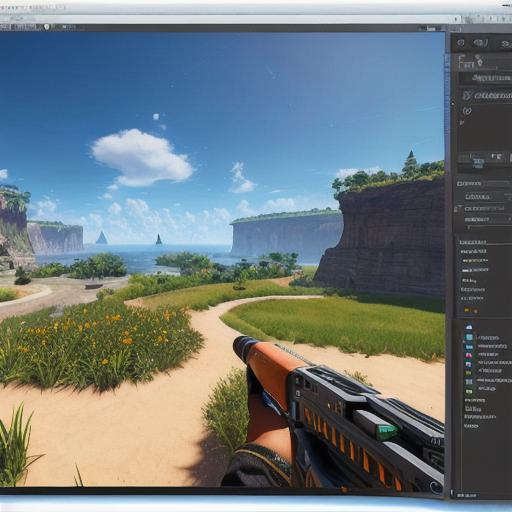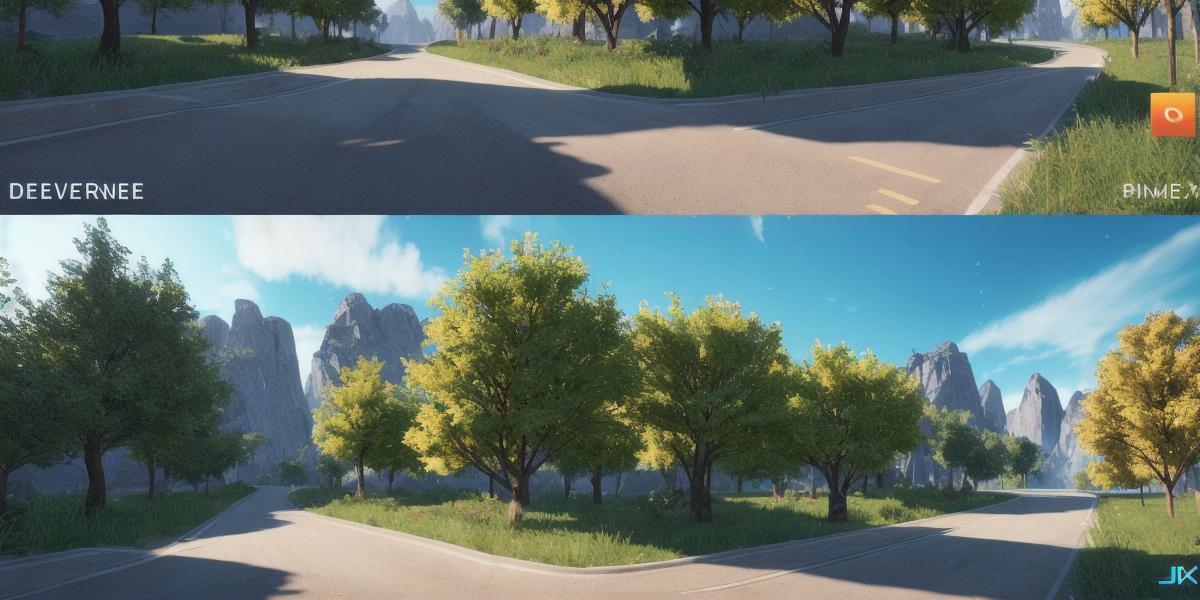Subtitle: A Comparative Analysis for Web Developers
Introduction:
Both Unreal Engine and Unity are popular game development engines that offer a range of features, flexibility, and ease of use. As a web developer exploring the world of game development, you might be wondering which engine offers faster development speed. In this article, we’ll compare Unreal Engine and Unity based on their development pipelines, learning curves, and community support to help you make an informed decision.
Subheading: Development Pipelines
Unity’s development pipeline is known for being user-friendly and efficient due to its intuitive editor, Asset Store, and extensive documentation. Unity’s component-based architecture allows developers to build complex projects with minimal code. This can make development faster as it often requires fewer custom solutions.


In contrast, Unreal Engine has a more robust development pipeline, which includes a powerful visual scripting system (Blueprint) and an advanced C++ codebase. Its high-performance graphics engine caters to more complex projects with rich visual effects and sophisticated game mechanics. While it might take longer to learn the ropes, it offers greater control and flexibility over the final product.
Subheading: Learning Curves
Unity’s learning curve is relatively gentle due to its simple interface and vast community resources. Its intuitive editor makes it easy for beginners to grasp the concepts and get started with development quickly. As you delve deeper into advanced features, more complex projects, or custom solutions, the learning curve steepens. However, Unity’s extensive documentation and active community make overcoming challenges much easier.
Unreal Engine’s learning curve is steeper than Unity’s due to its more complex development pipeline and vast feature set. Its advanced graphics engine requires a solid understanding of 3D modeling, texturing, lighting, and animation. Additionally, learning the nuances of Blueprint or C++ can be challenging for beginners. However, once you master the engine, you’ll have the tools to create visually stunning and complex games with ease.
Subheading: Community Support
Both Unity and Unreal Engine have thriving communities that offer extensive resources and support. Unity’s community is known for its generous asset store, which contains pre-built assets for everything from 3D models to entire game systems. Additionally, Unity’s active forum provides a platform for developers to share knowledge, ask questions, and collaborate on projects.
Unreal Engine’s community also offers vast resources and support through the Epic Games Launchpad and its extensive documentation. The engine is used by professional studios, indie developers, and hobbyists alike, ensuring that you’ll always find answers to your development questions or inspiration for your next project.
Conclusion:
So, which game development engine offers faster development speed?
The answer isn’t straightforward as it depends on your specific needs, skill level, and the complexity of your project. If you value a simple learning curve and quick development time with plenty of community resources, Unity might be the right choice for you. However, if you’re looking for greater control, flexibility, and advanced graphics capabilities, Unreal Engine is worth considering despite its steeper learning curve.
In summary, both engines offer unique advantages and challenges that can impact your development speed. By weighing these factors against your project requirements and skillset, you’ll be well on your way to making an informed decision and starting your game development journey with confidence.
